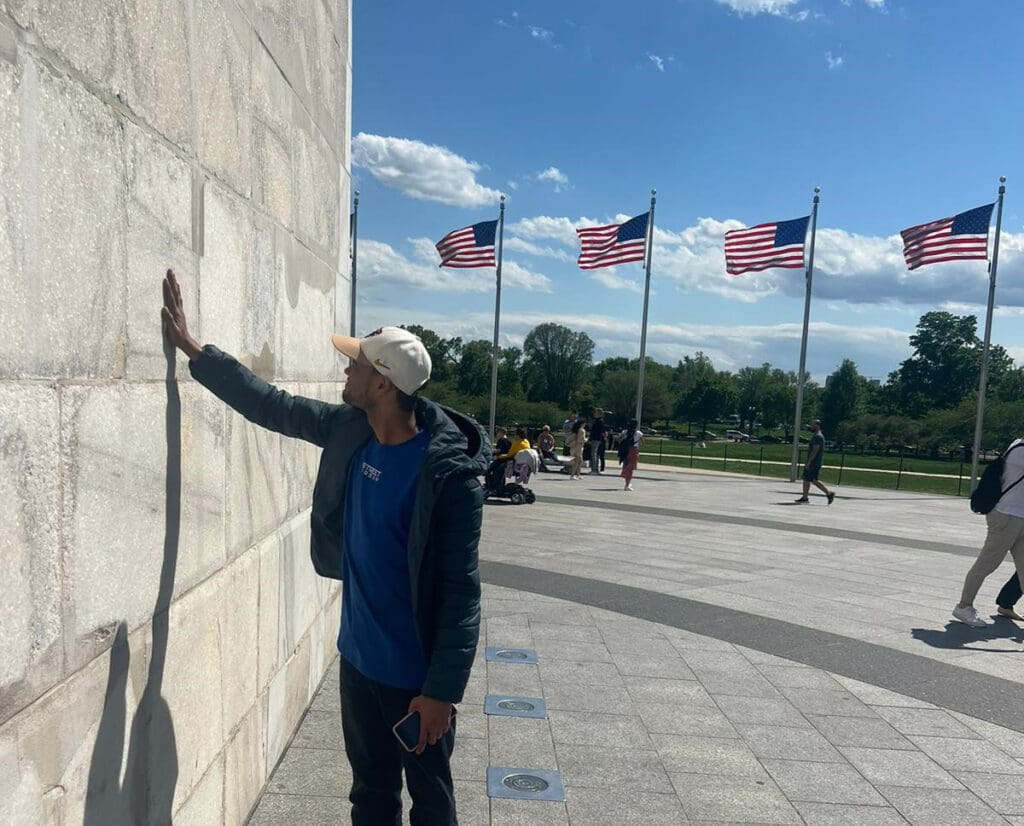
Vibrant connections to queer community and support from Welcome Corps sponsors help Wil Moreno feel safe in his new home.
Wilfredo “Wil” Moreno fled his native Venezuela for Colombia in search of safety and a community that would accept him fully as a queer person. He found that lifeline through a group of everyday Americans who joined the Welcome Corps.
Growing up, Wil was an eager student and dedicated himself to schoolwork, graduating high school and continuing his studies at university. But as part of the LGBTQ+ community, he faced challenges and persecution in Venezuela that left him no choice but to leave. Wil fled to Colombia where he learned about the Welcome Corps and a chance to find a permanent home in the United States. At the time, the prospect felt to Wil like a longshot, an opportunity almost too good to be true. But then it happened.
“They called and said that I was to travel to the United States,” Wil said. “I was extremely emotional. I’d really been waiting for this.”
In the United States, Wil’s sponsors were also eagerly waiting.
“When we first got the email that we were matched, there was a spike in anxiety and also excitement,” said Ryan Kaminski, the group coordinator for Super Best Friends, a seven-member Welcome Corps sponsor group in Washington, D.C. “This is really happening, we’re meeting someone at the airport.”
“I was a little anxious, because I didn’t have experience in refugee resettlement before. What helped change my mind was connecting with a group of friends and thinking how we would work together. Every time we reached out to someone new to join the group, we were met with ‘yes!’”
Ryan Kaminski, Welcome Corps sponsor
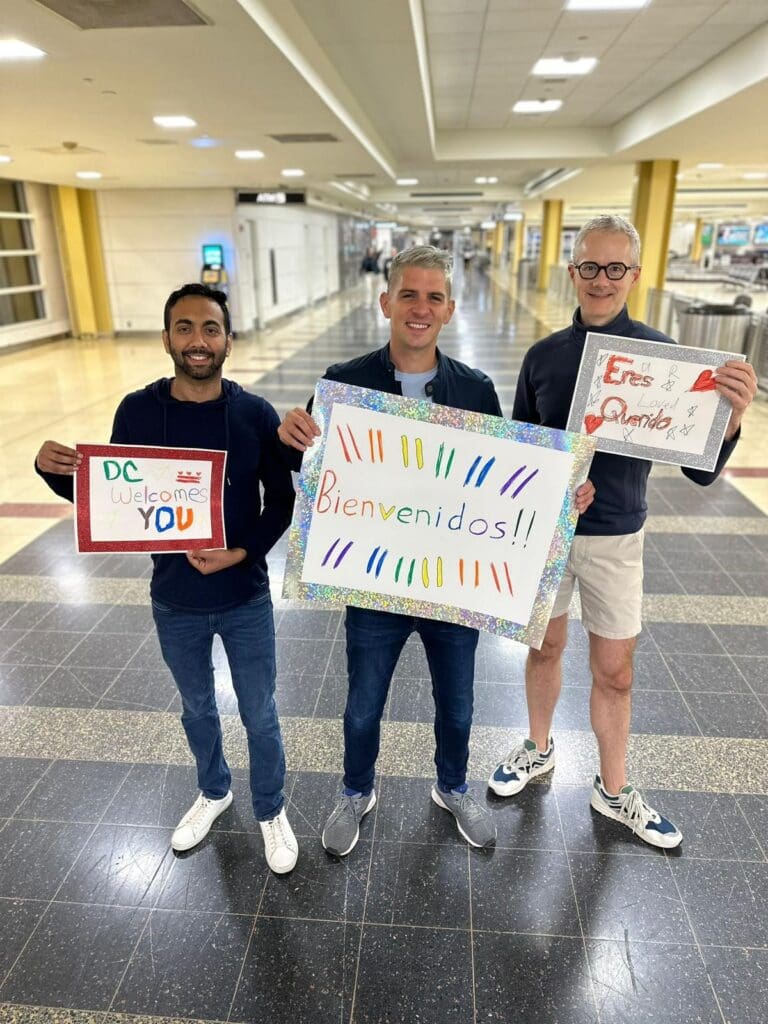
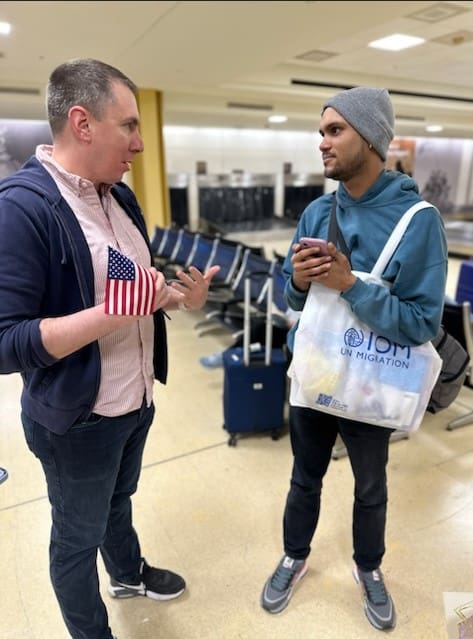
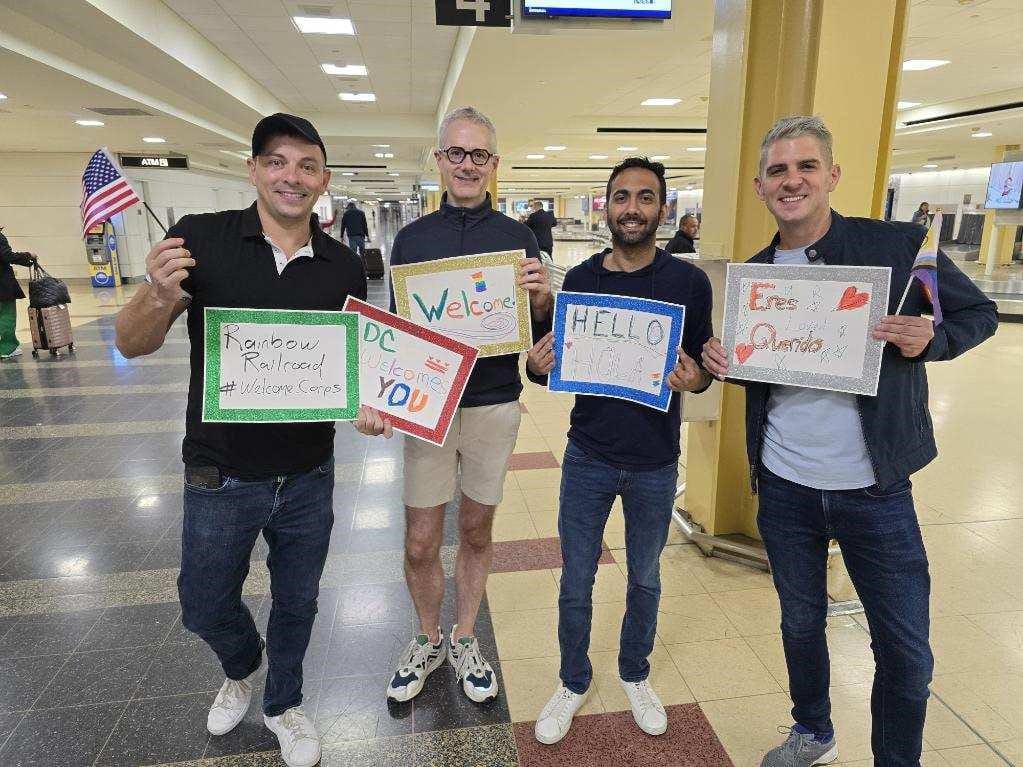
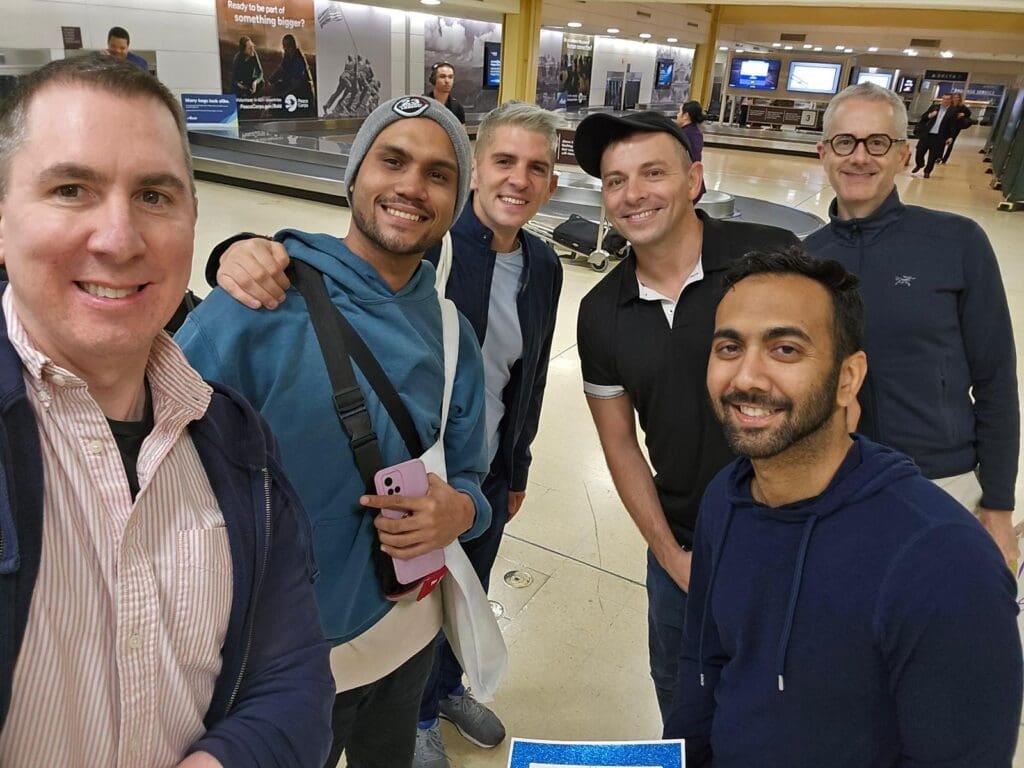
Members of Super Best Friends welcomed Wil at the airport and took him to his first home in the United States. Josh Black, National Security Council Senior Director for Multilateral Affairs, joined them and helped with translations for Wil and the group.
Months before Wil’s arrival in April 2024, Ryan went to a friend’s apartment for a local information session on how Americans could get involved with Rainbow Railroad, a global charitable organization that helps at-risk LGBTQI+ people get to safety worldwide and Welcome Corps Private Sponsor Organization (PSO). PSOs guide sponsors throughout the sponsorship process, equipping them to provide core services for refugees resettling in the United States.
“I was a little anxious, because I didn’t have experience in refugee resettlement before,” he recalled knowing a little about Canada’s successful private sponsorship program. “What helped change my mind was connecting with a group of friends and thinking how we would work together. Every time we reached out to someone new to join the group, we were met with ‘yes!’”
One of those friends was Matthew Schaaf, who previously worked with refugees overseas and queer people in challenging situations throughout his career in the nonprofit sector. Through his network, he invited old friends and new connections to help LGBTQ+ refugees find safety and acceptance in their community. Soon after, the Super Best Friends sponsor group formed.
With seven members, each Super Best Friends sponsor has a unique skillset to help Wil. Some sponsors lead on logistics or building a budget, while others help with things like applying for benefits or building a bike. Everyone has different strengths in different areas which helps the group provide support, Ryan said.
“When you’re surrounded by people who have… lived through similar circumstances and experiences in their life, it’s very comforting to be close to them.”
Wil Moreno, refugee
Just learning about daily life in a new country can feel daunting. Super Best Friends helped Wil navigate challenges from local transportation to accessing refugee assistance programs while he looked for a job. Support from Rainbow Railroad and the Welcome Corps also helped group members feel more confident in their ability to help Wil adapt to life in America and access financial resources, including Airbnb.org temporary housing credits before the group secured permanent, affordable housing.
In his new home, Wil felt safe. He also felt seen.
“When you’re surrounded by people who have… lived through similar circumstances and experiences in their life, it’s very comforting to be close to them,” Wil said.
Matthew agreed, highlighting the many ways that D.C. is a welcoming community for newcomers, people from Latin America, and queer people alike. The group was able to draw on community resources and support from family and friends.
In just two months, with the help of his sponsors and organizations like Rainbow Railroad and Catholic Charities, Wil has started to flourish. He quickly found a full-time job and dove into English language lessons. His goal is to become fluent and return to school to finish a degree in chemical engineering so that he can continue to contribute to his new community.
Thanks to the Welcome Corps, Wil is now able to be his full authentic self. This June, Wil and Super Best Friends sponsors attended several local Pride events, helping build vibrant connections between Wil and the local queer community.
“It’s been interesting to experience my home in a different way through the eyes of someone who is from a very different place with very different experiences. Thinking ‘What is it like to try and live in a new place, be a full person, and be happy?’”
Matthew Schaaf, Welcome Corps sponsor
“So many parts of the community were willing to engage on a dime,” Ryan recounted the many ways the D.C. community has shown up for Super Best Friends and Wil.
Upon hearing about Wil’s arrival from his friends in the sponsor group, National Security Council Senior Director for Multilateral Affairs Josh Black raced to the airport to join the sponsors. The group was grateful for the support – and another Spanish – speaker to greet Wil when he came off the plane. Weeks later, they took Wil to iconic sites across D.C., including the Washington Monument and Lincoln Memorial.
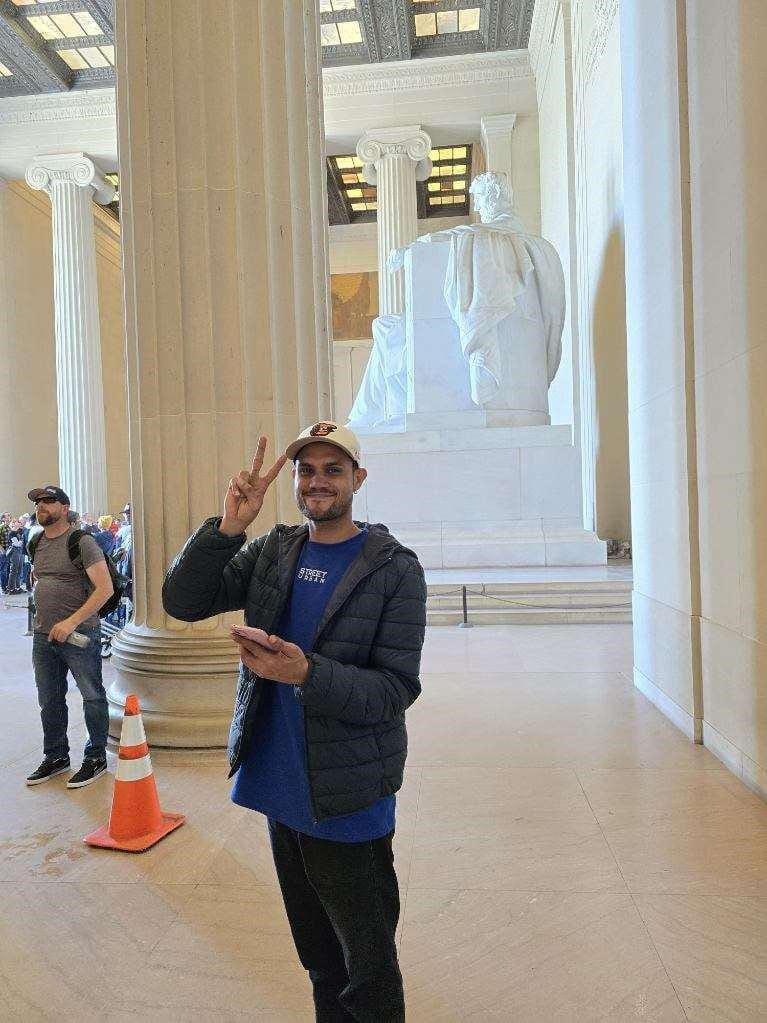
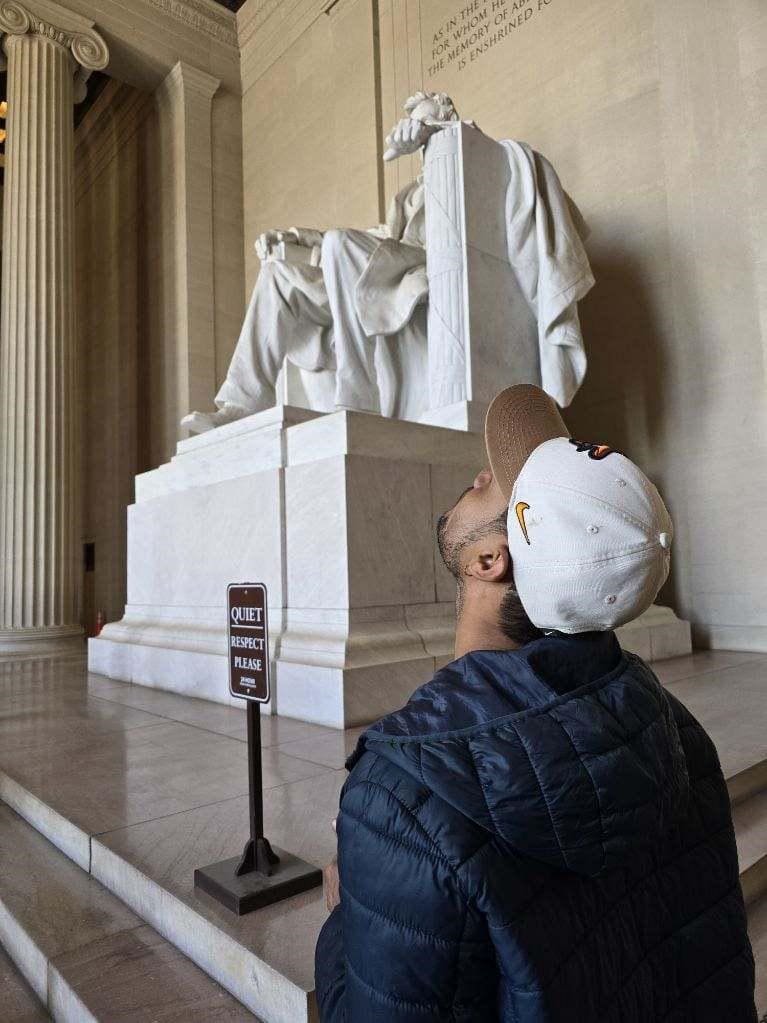
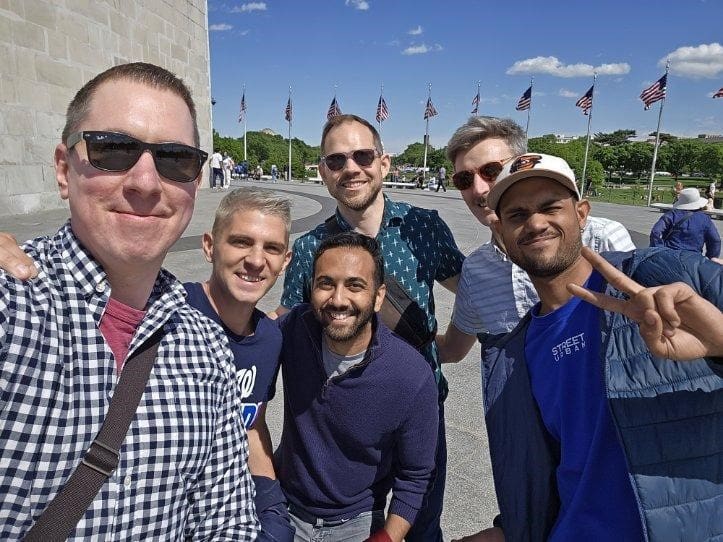
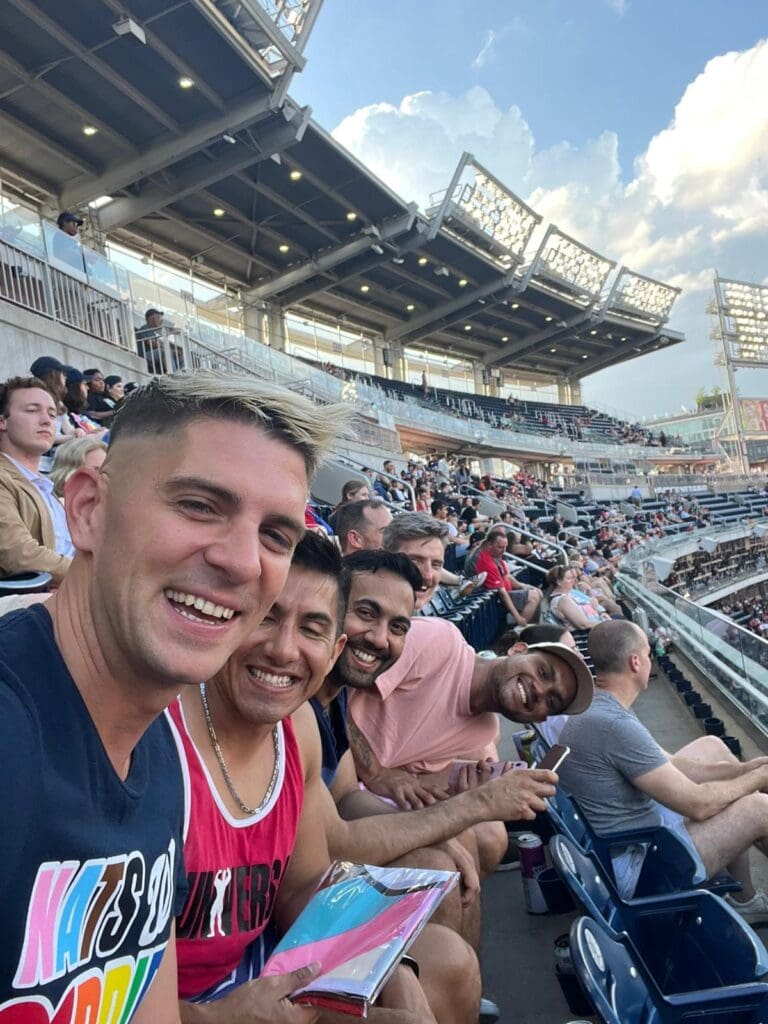
Super Best Friends sponsor group has enjoyed showing Wil around iconic sites in D.C. and sharing community events like Pride Night Out at the Nationals where Wil can be himself.
During a group dinner, one of the Super Best Friends introduced Wil to a Spanish-speaking friend, and soon the entire table was invited to a birthday party held by a Venezuelan gay couple in D.C. On a whim, they decided to go.
“Everyone completely welcomed Wil when he arrived. He described the different Venezuelan foods to us. There was great Venezuelan music,” Ryan said. “We were all welcomed to the home of a couple we’d never met, and they were so happy to meet Wil.”
Before being resettled through Welcome Corps, this kind of solidarity and support was unattainable for Wil, who notes that social and political persecution affect countless queer people like him in Latin America.
“That’s why we need [programs] like Welcome Corps, which take charge in helping [queer refugees] come here to live the American Dream and… to make clear that there are places where we can be accepted and not judged for who we are,” he said.
Wil’s story is one of many that showcase the incredible opportunity available to everyday Americans to help change the lives of a refugee in need.
“We’re just members of the community who came together [to help someone]. You hear about things in the news, but when you meet someone in person, it changes the dynamic,” Ryan said. “I have much more understanding of the challenges newcomers face and the importance of having that sense of community to provide a sort of landing pad.”
That night Ryan first heard about the Welcome Corps, there was a guest speaker sharing their experience as a newcomer in D.C. and how difficult it was for them to get a subway card. Ryan was touched by how some seemingly simple things can be immensely challenging for newcomers. The group faced their own struggles having to return to the DMV several times to get Wil a photo ID and replacing a Social Security card lost in the mail. They reassured Wil these things happen. Even though refugees are eligible to work as soon as they arrive in the United States, having documentation that all employers recognize is critical to securing long-term employment on their path to permanent residency and citizenship. Being a mentor and a guide is key to helping refugees adjust to life in a new country.
“It’s been interesting to experience my home in a different way through the eyes of someone who is from a very different place with very different experiences. Thinking ‘What is it like to try and live in a new place, be a full person, and be happy?’” Matthew said. “It’s been fun and scary sometimes. I’m finding my own role as sponsor, or mentor, or friend. Hopefully, we can continue to be all of those.”
““That’s why we need [programs] like Welcome Corps, which take charge in helping [queer refugees] come here to live the American Dream and… to make clear that there are places where we can be accepted and not judged for who we are.”
Wil Moreno, refugee